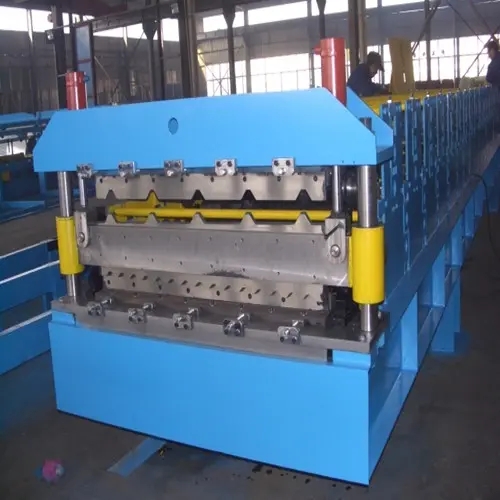
The Importance of C Channel Rolling Machines in Modern Manufacturing
In the world of manufacturing, the demand for precision and efficiency is ever-increasing. Among the various advanced machinery utilized in this field, C Channel Rolling Machines have emerged as indispensable tools for metal fabrication. These machines play a crucial role in the production of C channels, which are essential components used in a wide range of construction and industrial applications. This article delves into the significance of C Channel Rolling Machines, their working principles, and their impact on modern manufacturing practices.
What is a C Channel Rolling Machine?
A C Channel Rolling Machine is a specialized piece of equipment designed to bend and shape metal sheets and plates into a C-shaped cross-section. The process typically involves feeding a flat piece of metal through a series of rollers that progressively shape it into the desired profile. The machine operates on the principles of bending, stretching, and compressing the metal, allowing for precise and consistent results.
These machines come in various sizes and configurations, catering to different production needs. Some models are manual, offering operators hands-on control, while others are fully automated, integrating advanced technologies for enhanced precision and speed. Regardless of the design, C Channel Rolling Machines are engineered to deliver high-quality results, ensuring that manufacturers can meet the demanding standards of their industries.
Applications of C Channels
C channels are fundamental components in construction and manufacturing. They are widely used as structural supports in buildings, bridges, and other infrastructures. Their unique shape provides excellent strength-to-weight ratios, making them ideal for applications that require robust support without excessive weight. Additionally, C channels are employed in truck and trailer frames, shelving systems, and various machinery components.
In industries such as automotive manufacturing, aerospace, and heavy machinery, the need for durable and reliable components is paramount. C Channel Rolling Machines facilitate the production of these critical components, ensuring that manufacturers can quickly and efficiently create the high-quality parts needed for their projects.

Benefits of Using C Channel Rolling Machines
1. Precision and Consistency One of the primary advantages of using C Channel Rolling Machines is the level of precision they offer. These machines ensure that every piece produced meets exact specifications, which is vital in industries where safety and reliability are critical.
2. Increased Efficiency By automating the bending process, C Channel Rolling Machines significantly reduce production times. This increase in efficiency allows manufacturers to meet tight deadlines and respond more effectively to market demands.
3. Cost-Effective Production While the initial investment in a C Channel Rolling Machine may be substantial, the long-term savings are considerable. These machines minimize material waste and reduce labor costs, as fewer operators are needed to manage the production process.
4. Versatility Modern C Channel Rolling Machines can handle a variety of materials, including aluminum, stainless steel, and carbon steel. This versatility enables manufacturers to adapt to different project requirements and materials with ease.
5. Customization Options Many C Channel Rolling Machines can be programmed to create custom shapes and sizes. This flexibility is invaluable for manufacturers who require specific or unique designs for their projects.
Conclusion
As the manufacturing landscape continues to evolve, the role of C Channel Rolling Machines becomes increasingly critical. Their ability to produce high-quality, precise components quickly and efficiently makes them a vital investment for any manufacturer involved in metal fabrication. As industries seek to enhance productivity and stay competitive, embracing advanced machinery like C Channel Rolling Machines is not just advantageous; it is essential for meeting the challenges of modern manufacturing. With their myriad benefits, these machines will undoubtedly continue to shape the future of the industry, paving the way for innovation and excellence in production practices.